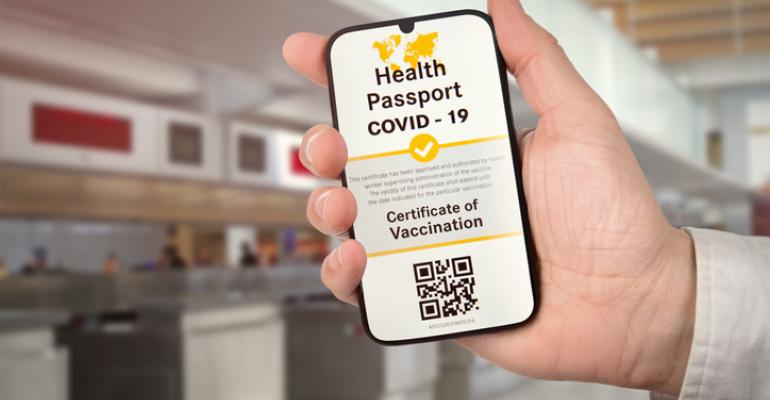If you’re considering using a digital health passport as part of your meeting risk management toolkit, the good news is you won’t be the first down this path and your attendees are likely to be on board with the idea, too.
According to a late-February survey by Amadeus of 9,055 travelers in the U.S., France, Spain, U.K., Germany, India, UAE, Russia, and Singapore, an overwhelming 91 percent are comfortable using a digital health passport for future trips. These so-called passports validate that an individual has been vaccinated or, for those who can’t or choose not to get vaccinated, that they’ve had a recent negative Covid test.
One conference organizer that’s taken the leap is G4 Live, which plans to use Reviv Global’s Heliix Health Pass for two events in Las Vegas this year: one in May expecting 3,000 people and another in September for 20,000. Those events will be at Mandalay Bay; further up the Strip, Las Vegas Sands Corp. recently announced it will be working with Health Pass from Clear to get back to the business of conventions and trade shows at The Venetian.
New York state is also gaining experience with health passports. Theaters, stadiums, arenas, and catered events are now required to screen for coronavirus, and the state has rolled out the Excelsior Pass, developed by IBM, to make that easier. Using the health passport is voluntary, but providing proof of coronavirus status is not, so attendees can either bring a vaccination card, a copy of a recent Covid test result, or use the Excelsior Pass to enter an event.
If you have plans to fly internationally, you might have an opportunity to test a passport technology yourself. CommonPass, developed by The Commons Project and the World Economic Forum, is being used on some flights offered by JetBlue, Lufthansa, Swiss International Airlines, United Airlines, and Virgin Atlantic. VeriFLY is being tested by Alaska, American, and British Airways. And the International Air Transport Association’s travel passport, Travel Pass, recently trialed on Qatar Airways.
A large field of similar, emerging technologies may make adoption complicated, and privacy issues raise concerns for some: In the same Amadeus survey, 93 percent of respondents had some concerns about how the health passport would store their data. However, privacy is being addressed by the developers. The IBM Digital Health Pass, for one, is built on safe blockchain technology.
For attendees who want to return to in-person events and need to feel safe doing so, a technology that can help meeting organizers verify their Covid status might feel like no greater risk than paying their registration fee with a credit card online.





